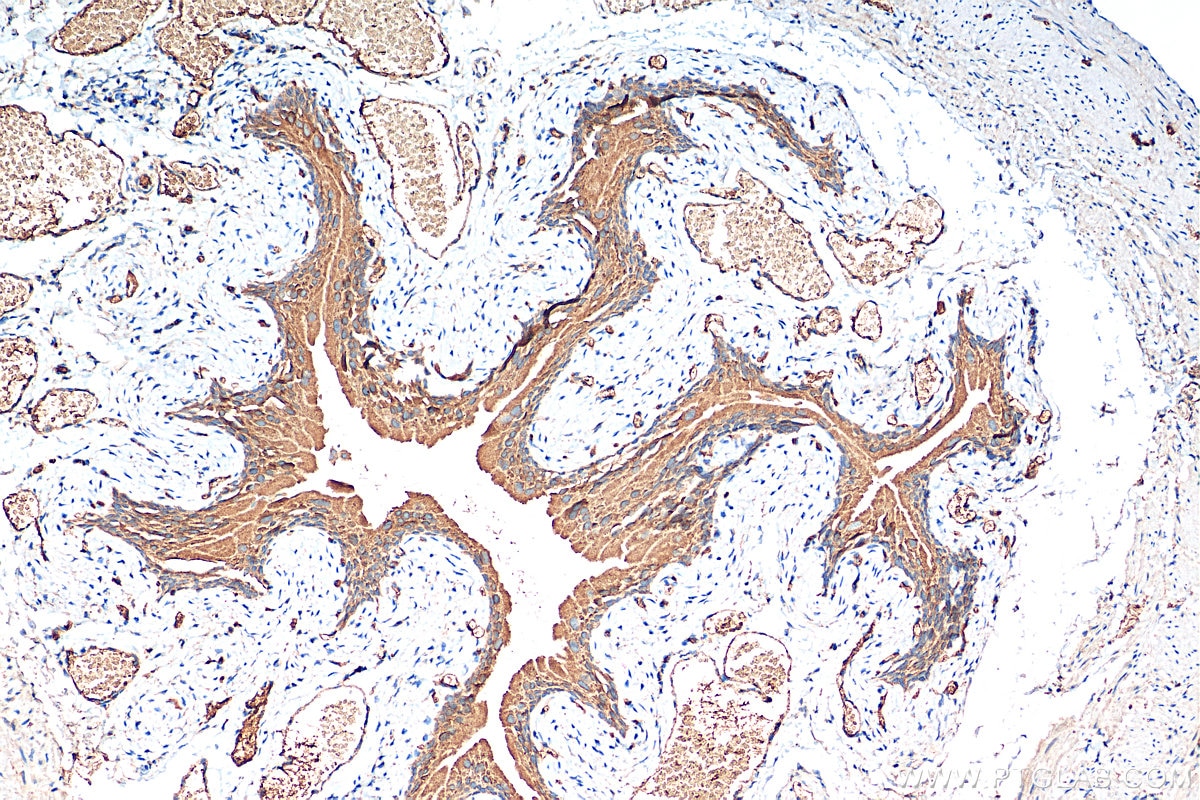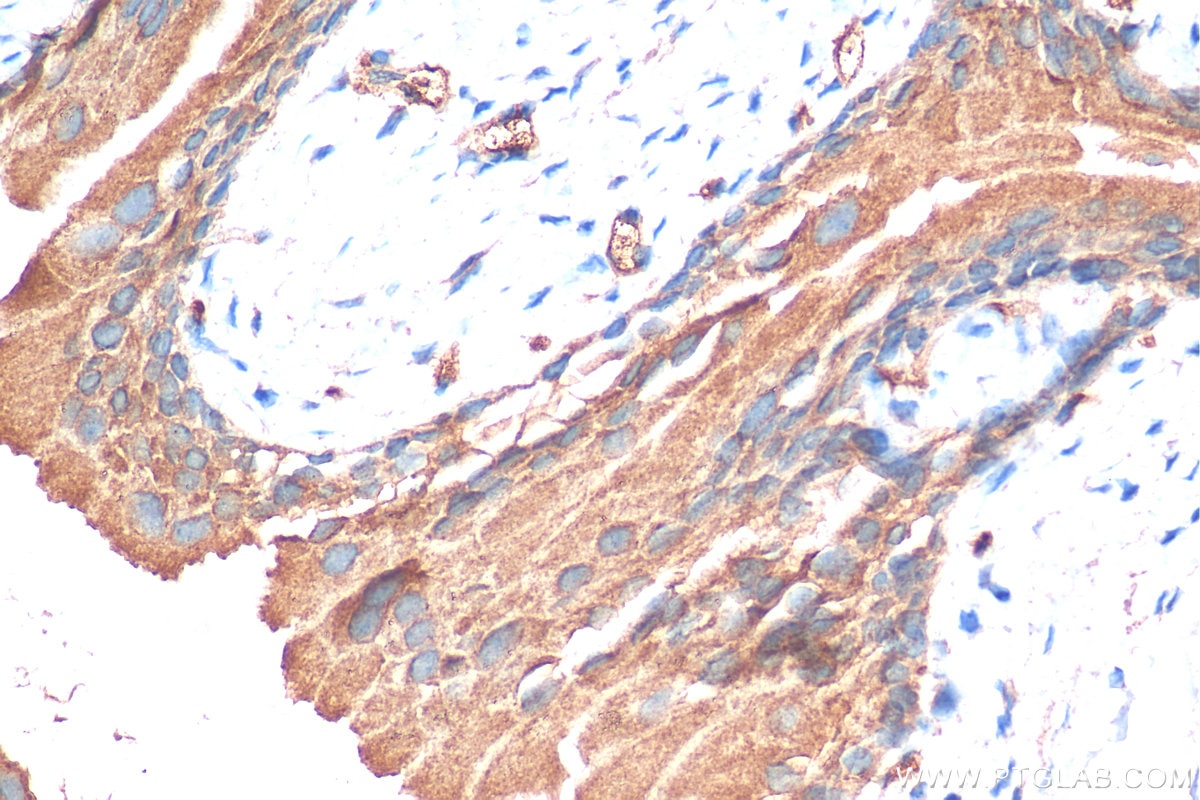Anticorps Polyclonal de lapin anti-GPR87
GPR87 Polyclonal Antibody for IHC, ELISA
Hôte / Isotype
Lapin / IgG
Réactivité testée
Humain, souris
Applications
IHC, ELISA
Conjugaison
Non conjugué
N° de cat : 25999-1-AP
Synonymes
Galerie de données de validation
Applications testées
| Résultats positifs en IHC | tissu vésical de souris, il est suggéré de démasquer l'antigène avec un tampon de TE buffer pH 9.0; (*) À défaut, 'le démasquage de l'antigène peut être 'effectué avec un tampon citrate pH 6,0. |
Dilution recommandée
| Application | Dilution |
|---|---|
| Immunohistochimie (IHC) | IHC : 1:50-1:500 |
| It is recommended that this reagent should be titrated in each testing system to obtain optimal results. | |
| Sample-dependent, check data in validation data gallery | |
Informations sur le produit
25999-1-AP cible GPR87 dans les applications de IHC, ELISA et montre une réactivité avec des échantillons Humain, souris
| Réactivité | Humain, souris |
| Hôte / Isotype | Lapin / IgG |
| Clonalité | Polyclonal |
| Type | Anticorps |
| Immunogène | GPR87 Protéine recombinante Ag23214 |
| Nom complet | G protein-coupled receptor 87 |
| Numéro d’acquisition GenBank | BC132888 |
| Symbole du gène | GPR87 |
| Identification du gène (NCBI) | 53836 |
| Conjugaison | Non conjugué |
| Forme | Liquide |
| Méthode de purification | Purification par affinité contre l'antigène |
| Tampon de stockage | PBS avec azoture de sodium à 0,02 % et glycérol à 50 % pH 7,3 |
| Conditions de stockage | Stocker à -20°C. Stable pendant un an après l'expédition. L'aliquotage n'est pas nécessaire pour le stockage à -20oC Les 20ul contiennent 0,1% de BSA. |
Informations générales
G Protein-Coupled Receptor 87 (GPR87) is a GPCR, and it has been demonstrated to regulate the progression of several tumors (PMID:18183596). Studied reported that GPR87 promotes PDA (Pancreatic ductal adenocarcinoma) proliferation, angiogenesis, gemcitabine resistance, and tumorigenicity through activating the nuclear factor-kB (NF-kB) pathway (PMID:32405536). GPR87 is an independent prognostic factor for bladder cancer intravesical recurrence; it promotes bladder cancer cell proliferation and inhibits apoptosis. In addition, GPR87 was deorphanized and shown to be a lysophosphatidic acid (LPA) receptor (PMID:23752273).
Protocole
| Product Specific Protocols | |
|---|---|
| IHC protocol for GPR87 antibody 25999-1-AP | Download protocol |
| Standard Protocols | |
|---|---|
| Click here to view our Standard Protocols |



